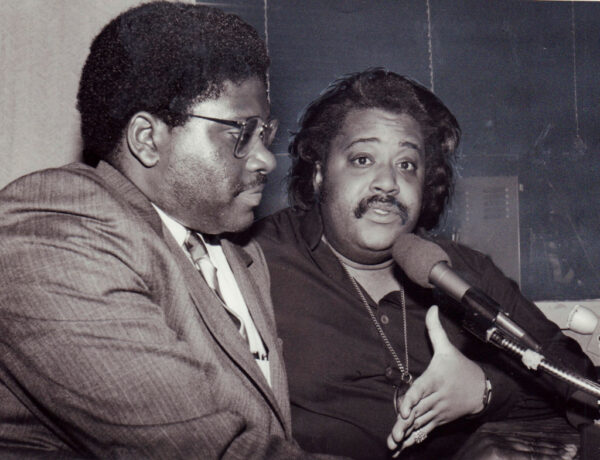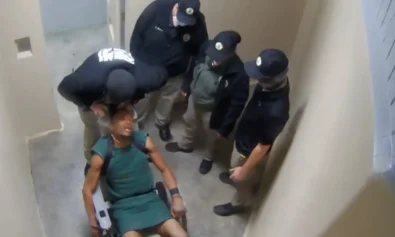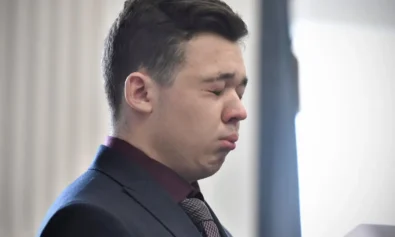One of New York’s most notable civil rights lawyers, who received the title of “People’s Lawyer” because of his advocacy for Black and brown people, died at 77.
On Sunday, April 23, Alton Maddox, Jr. transitioned leaving a legacy of activism that serves as a precursor to the modern-day Black Lives Matter and Until Freedom movement.

The cause of his death is unknown, but family members stated he had been suffering from dementia.
Maddox rose to national acclaim as one of the attorneys representing Tawana Brawley in the late ’80s, the estate of emerging artist and friend of Jean Basquiat, Michael Stewart, who died in police custody in 1983, and Michael Briscoe, one of the members of the Central Park 5 (now the Exonerated 5), the Amsterdam News reports.
There were many other cases that Maddox carried on his back that placed a spotlight on the racially tense atmosphere of New York City in the 1980s and ’90s.
In 1986, when Cedric Sandiford, one of three Black men hunted and attacked by a mob of white men in Howard Beach, needed counsel, he was the name they called. The same was the case for the family of Michael Griffin, who reached out to Maddox when their loved one was fatally hit by a car in the same Howard Beach area of Brooklyn.
His advocacy helped convict nine people of various charges connected to Griffith’s death
The attorney was born in the all-Black town of Inkster, Michigan, on July 21, 1945. He grew up in the Atlanta suburb of Newnan, Georgia, and graduated from Howard University in Washington D.C. in 1967 at the age of 21.
He would later go on to get a juris doctorate from Boston College in 1971.
Upon becoming a lawyer, he dedicated his life to the liberation of Black people and was unapologetic about his call, and worked hard to help others liberate themselves from the white gaze.
“My parents would never let me work for white people as I was growing up because they didn’t want me exposed to that way of instilling the racial superiority of whites,” he said in an interview with the New York Times in 1987.
This attitude kept him in trouble with the law and court system, as his often-brash Black power disposition often placed him in conflict with authority.
One of Maddox’s most famous clients was National Action Network founder and MSNBC pundit Rev. Al Sharpton.
He successfully defended Sharpton after he was indicted on 67 counts of alleged fraud and theft. The preacher, who also stood with him in the Brawley case and as an advocate for the family of Hawkins, was acquitted of his charges.
His relationship with Sharpton was complicated and broke down decades ago.
Some of the erosion of their social justice relationship was connected to the fallout from the Brawley case and how they handled it in public. In a 170-page report, a grand jury concluded Brawley was untruthful about her account, which included rape, abuse, and various white supremacy groups.
“I’ve spoken to Charles Maddox to give the condolences of NAN [the National Action Network] and myself,” Sharpton said. “I had not spoken or seen Alton in 20 years (2003) and we had our tactical and ideological differences (that he chose to make public), [but] now is the time to give our prayers and thoughts to his son and grandchildren.”
In addition to trooping with Sharpton, Maddox was a close colleague and civil rights attorney C. Vernon Mason.
In 2000, the trio was found liable in a defamation case connected to their fierce activism around the Brawley case and their insistence that Dutchess County prosecutor Steven Pagones was involved in the assault.
After losing the defamation case, Pagones was awarded a $345,000 judgment in 2000. Maddox was fined $95,000 that expense was covered by donations.
Still, Maddox would not denounce the client or the incident. As a result, his license was suspended in 1990.
He never applied to have it restored.
“The white man thought that after 13 years I’d be so much on my knees. They don’t know me,” he said in 2003.
Maddox, the leader of the United African Movement, had a following that gathered weekly to hear his pro-Black messages and breakdowns of Black History from a legal and political perspective.
“There’s not a professional, legal person who did not benefit from the influence of attorney Alton Maddox, with his professionalism and master ability,” said John Walker, longtime moderator of Maddox’s United African forum.
“His skills traversed the international arena,” Walker added. “He was a dedicated asset to our community. He will be missed, but students and activists will forever be able to study his devastatingly effective court decorum. His delivery was a masterclass.”
One person who believed him to be a legal genius was the mayor of New York City, Eric Adams.
“He was a legal genius who used his legal knowledge as a shield and swiped to fight on behalf of marginalized people of color,” Adams said.
After retiring, he was known to say with a smile, “They don’t want me back in the courtroom because they don’t want any more butt whippings.”
According to friends close to the family, his son Charles Maddox, whom he shared with his wife Leola Maddox — who preceded Alton Maddox in death six years prior — will be handling arrangements to transport him from New York to Atlanta.
A homegoing service for Maddox was held at Abyssinian Baptist Church on May 1.


